Our relationship with food or the process of eating is very complex. It stems from and relates to many aspects of ourselves, our culture, our family traditions, our past experiences, our expectations, and our desires (both physical and emotional/psychological). When I taught nutrition at one of the local community colleges, I would open the first class with a question like, “Think about how you eat, why you eat, when you eat, where you eat, with whom you eat. Now think about your ‘rules’ around eating like having to finish the plate or having to offer food to guests. Now think about when do you ever get together with other people – family or friends – and NOT have food or beverages of some kind. ” With all of those factors (and many more than just those listed) how could we possibly think that our relationship with food is simple? For example when someone says, “Oh, well, just eat less” or “just eat more” or “just don’t eat that” they are simplifying and minimizing the relationship with food! For example, when I trained to be a Registered Dietitian (back in the early 1980’s – and yes, I am that old!) we did think eating and weight was simple (i.e. calories in vs. calories out or eat less calories/food and exercise more then you will lose weight) however in the past 30 years we have started to understand more about how complex the body’s response is to food, activity, mood and weight. Even now though, our understanding is still scratching the surface of the complexity of the very fine balance or homeostasis our body is constantly trying to achieve. People often don’t understand that relationship so their attempts to lose weight, for example, are not having the long term results they want because they end up fighting their own body’s survival mechanisms. When we refer to a healthy/unhealthy or functional/dysfunctional relationship with food are we talking about healthy/functional physically or psychologically or socially? People often come in for counseling (whether it is initially for nutritional counseling or psychological counseling) in a chronic malnourished state from chronic dieting or fad diets that then affect their psychological functioning. So which comes first – the dieting/fad nutrition or the psychological challenges? We know from the Minnesota Semi-Starvation Experiment (Ancel Keys, Minnesota University published in 1950) that even a 50% cut in calories for 6 months caused significant changes in psychological functioning and those effects lasted well after resuming eating. Is it then Disordered Eating or a full on Eating Disorder? This is often a challenge to have the client understand the very fine and complex balance between their nutrition or malnutrition and their relationship struggles or psychological symptoms in just one session. Sometimes their journey to optimum functioning starts with nutrition counseling, sometimes it starts with psychological counseling (just as the problems may have started with either one), but more often it starts with what I call, “the shuffle dance” where we shuffle back and forth between both seamlessly. That is exactly why I went back to college and got 2 Master’s degrees in Psychology – so I could seamlessly provide both services rather than divide the treatment between a psychotherapist and a Registered Dietitian! The journey to developing a healthier relationship with food (and people) starts with an assessment of where you are starting at then developing together the plan of how to move from where you are at to where you want to be with professional guidance or mentoring.
Putting the Pieces Together (So We Make Sense of Ourselves, Others and Our World)
Lois Zsarnay, LMFT, CEDS, CCTP, EMDR, BCPC, RD
(805)650-0507
©2014 Lois Zsarnay, LMFT, CEDS, CCTP, EMDR, BCPC, RD
